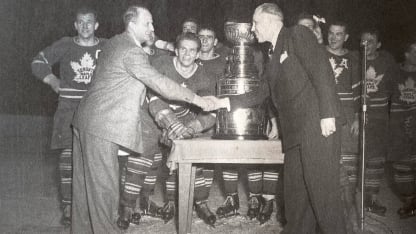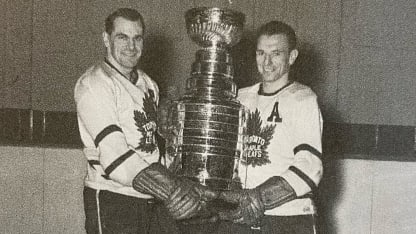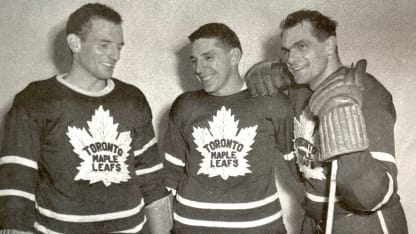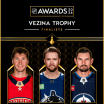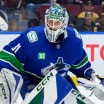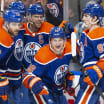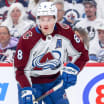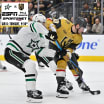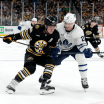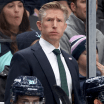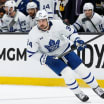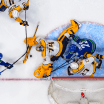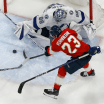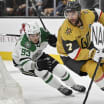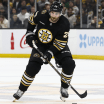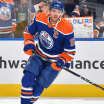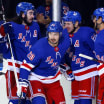Legendary hockey reporter Stan Fischler writes a weekly scrapbook for NHL.com. Fischler, known as "The Hockey Maven," shares his humor and insight with readers each Wednesday.
This week looks at the 75th anniversary -- April 16, 1949 -- of the Toronto Maple Leafs becoming the first NHL team to achieve a Stanley Cup threepeat.
Had anyone suggested in the spring of 1946 that the Toronto Maple Leafs would win the Stanley Cup the following season, he or she would have been laughed right out of Maple Leaf Gardens.
All you had to do was look at the record.
Having played 50 games, the Hap Day-coached team finished the 1945-46 season 19-24-7, nowhere making the Stanley Cup Playoffs. Even more discouraging was the fact that several of the homecoming World War II veterans who enlisted in the Canadian Armed Forces had grown older and, as far as some critics were concerned, lost their speed.
"It took half a season to get our bearings again," Toronto captain and center Syl Apps told author Jack Batten in "The Leafs in Autumn."
"While I was in the service, I had hardly been on skates those two years. I had a terrible time settling down."
Others who had starred for the 1942 Cup-winning Maple Leafs also found, at least for the moment, that their legs were gone. Goalie Turk Broda, forward Nick Metz and other veterans were slow to regain their pre-war form.
"When my vets returned," Maple Leafs owner Conn Smythe said, "it appeared that they had run out of steam. It was time to rebuild."
Smythe had no idea whether future Hockey Hall of Famers like Broda and Apps still had the goods to keep pace in the postwar NHL, so he gambled on a bunch of rookies and when training camp opened in September 1946, you couldn't tell the players without a program.
Unknowns such as right wing Howie Meeker, left wing Vic Lynn and defenseman Jimmy Thomson were there to replace veterans from the 1945 Stanley Cup champions.
"It was a helluva thrill," said Meeker, who would up winning the 1947 Calder Trophy as NHL rookie of the year.
Another promising rookie was defenseman Gus Mortson, who found an unusual way to make the team.
"The Leafs had a terrific skate sharpening fellow named Tommy Naylor, who I sought out and had him do my skates," Mortson said. "But since we were in Hamilton the other players used some half-baked skate guy.
"When we went out on the ice that night, I was the only player who could stand up. Their fella buggered up their skates, so I looked like an all-star compared to everyone else. P.S. I wasn't out of the NHL for the next 12 years."
